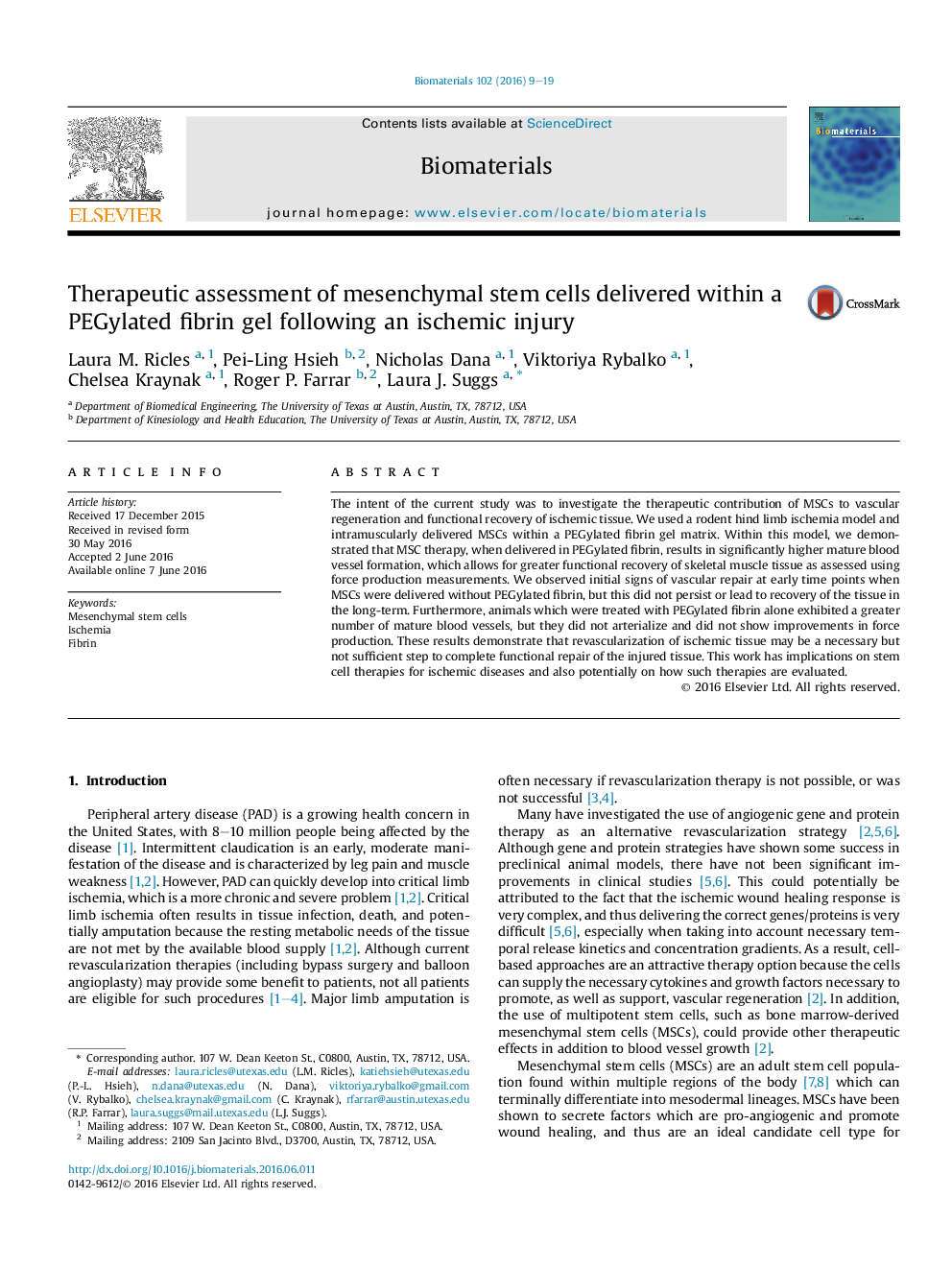| Article ID | Journal | Published Year | Pages | File Type |
|---|---|---|---|---|
| 5310 | Biomaterials | 2016 | 11 Pages |
The intent of the current study was to investigate the therapeutic contribution of MSCs to vascular regeneration and functional recovery of ischemic tissue. We used a rodent hind limb ischemia model and intramuscularly delivered MSCs within a PEGylated fibrin gel matrix. Within this model, we demonstrated that MSC therapy, when delivered in PEGylated fibrin, results in significantly higher mature blood vessel formation, which allows for greater functional recovery of skeletal muscle tissue as assessed using force production measurements. We observed initial signs of vascular repair at early time points when MSCs were delivered without PEGylated fibrin, but this did not persist or lead to recovery of the tissue in the long-term. Furthermore, animals which were treated with PEGylated fibrin alone exhibited a greater number of mature blood vessels, but they did not arterialize and did not show improvements in force production. These results demonstrate that revascularization of ischemic tissue may be a necessary but not sufficient step to complete functional repair of the injured tissue. This work has implications on stem cell therapies for ischemic diseases and also potentially on how such therapies are evaluated.
